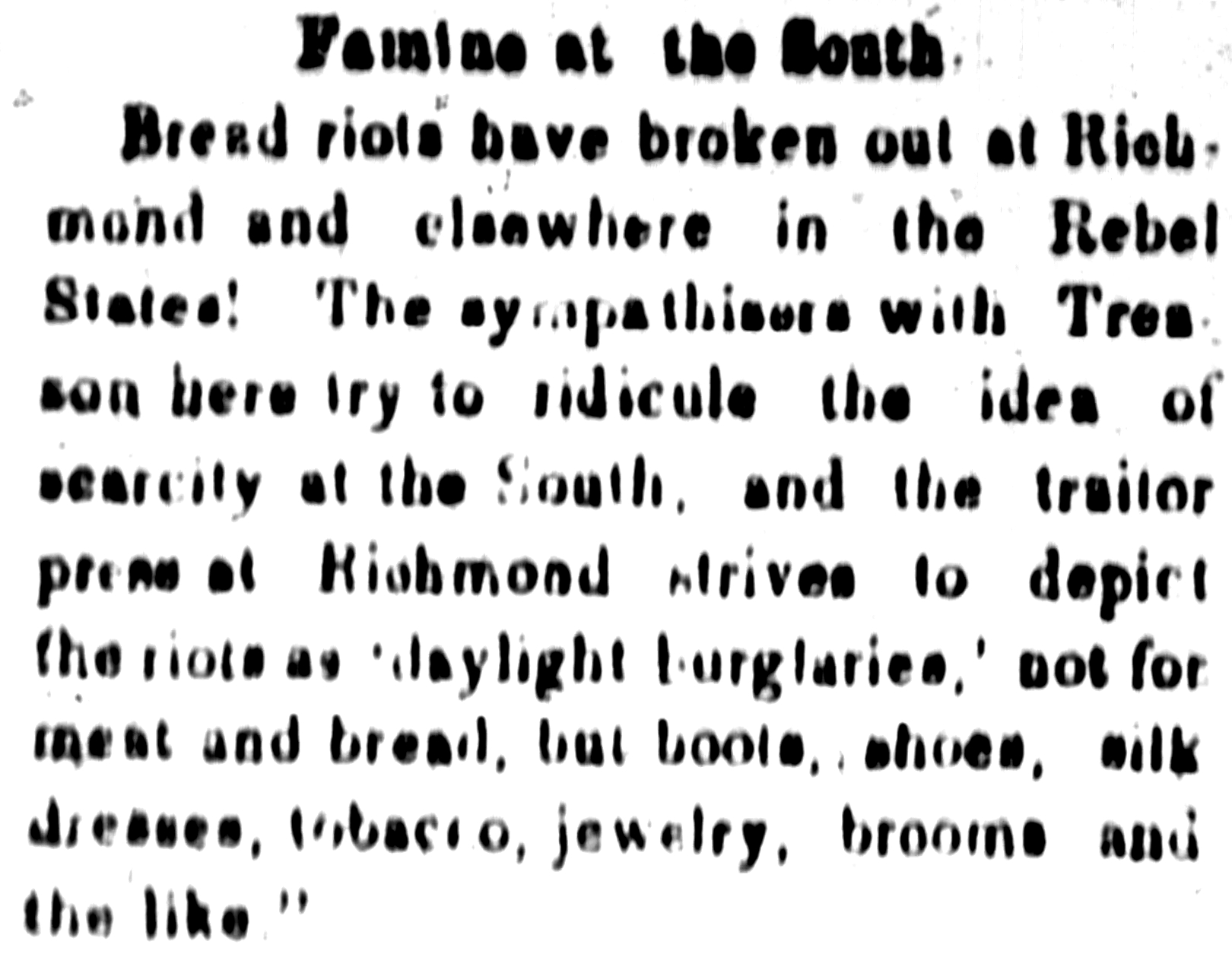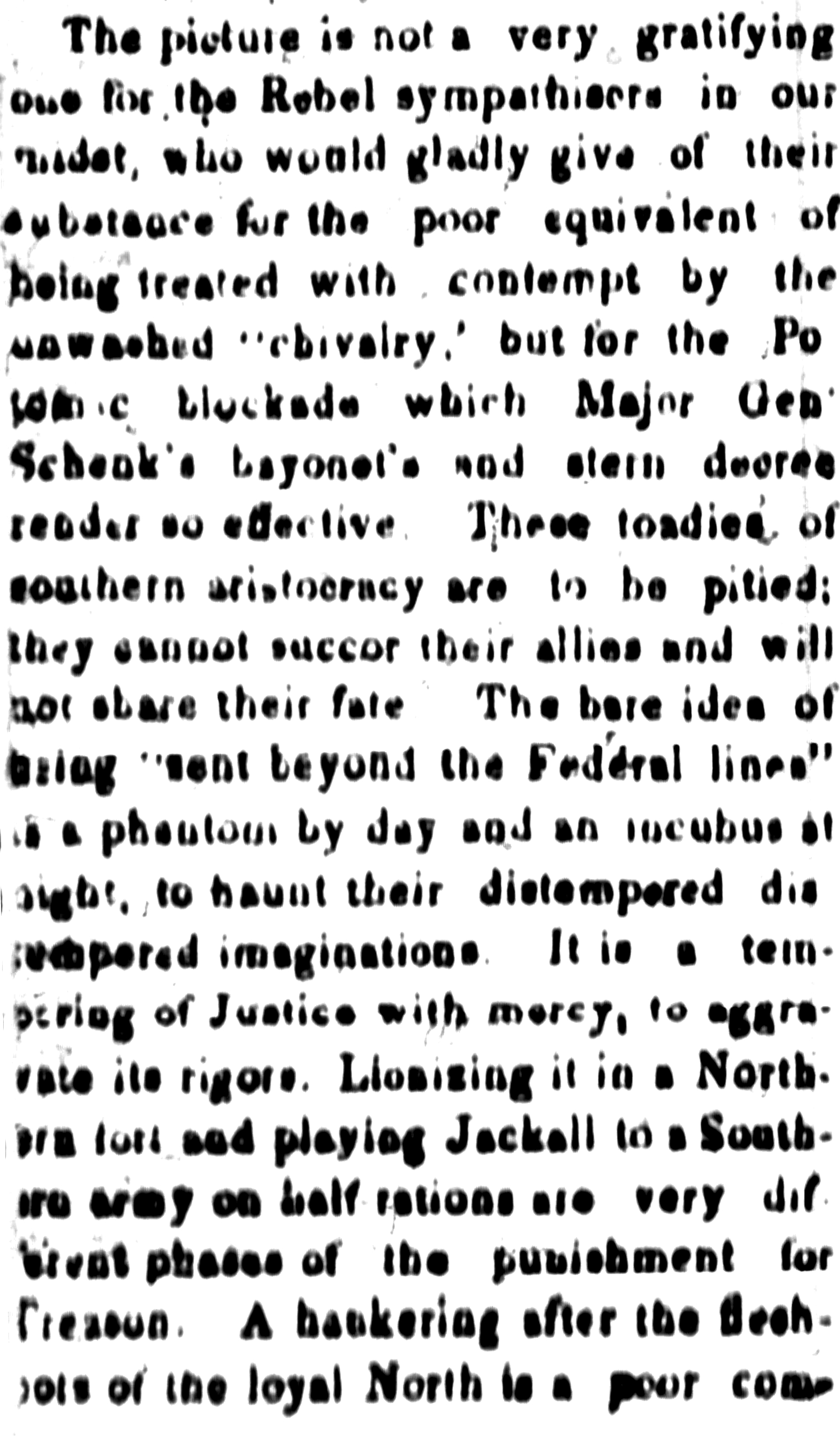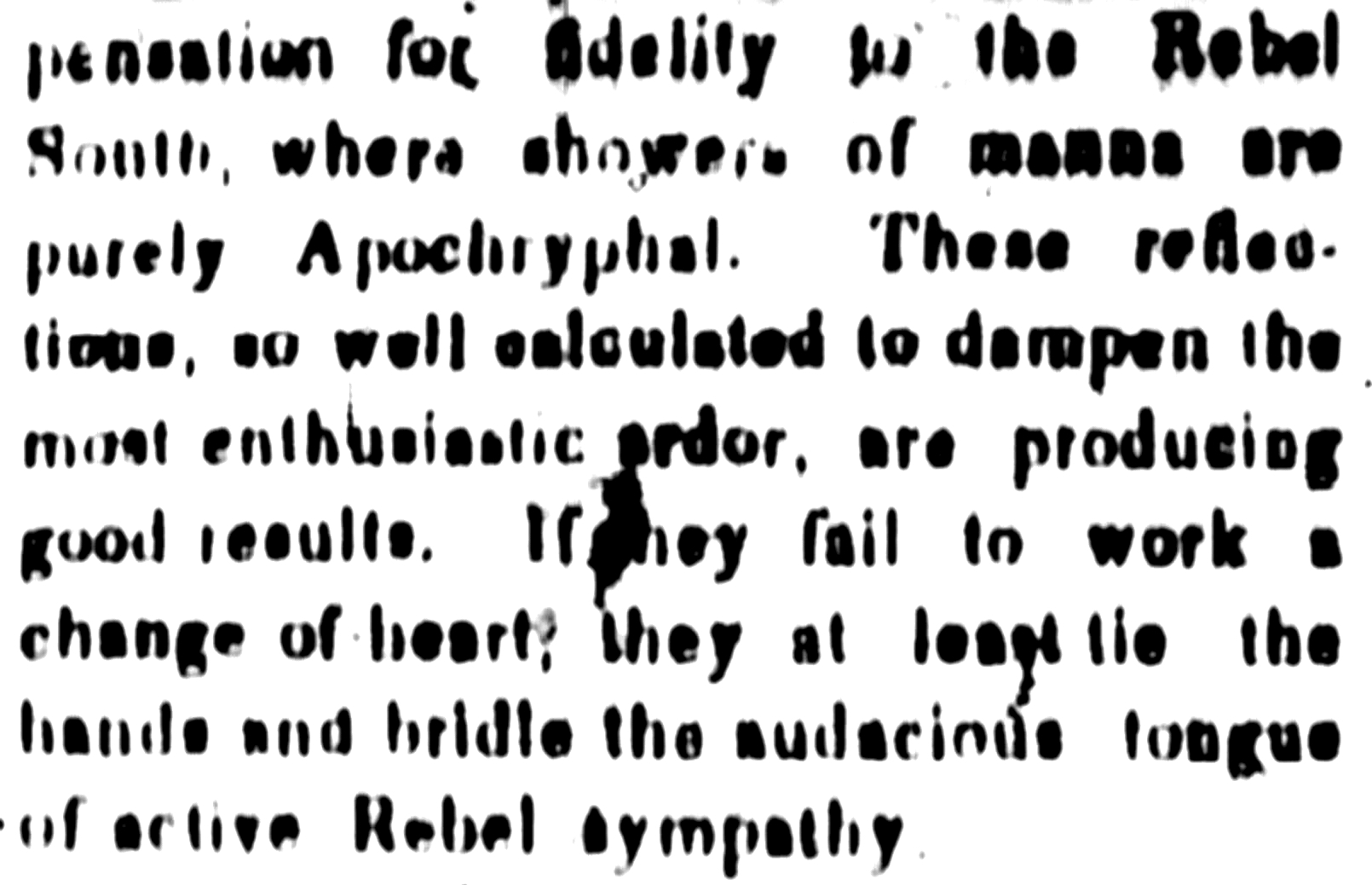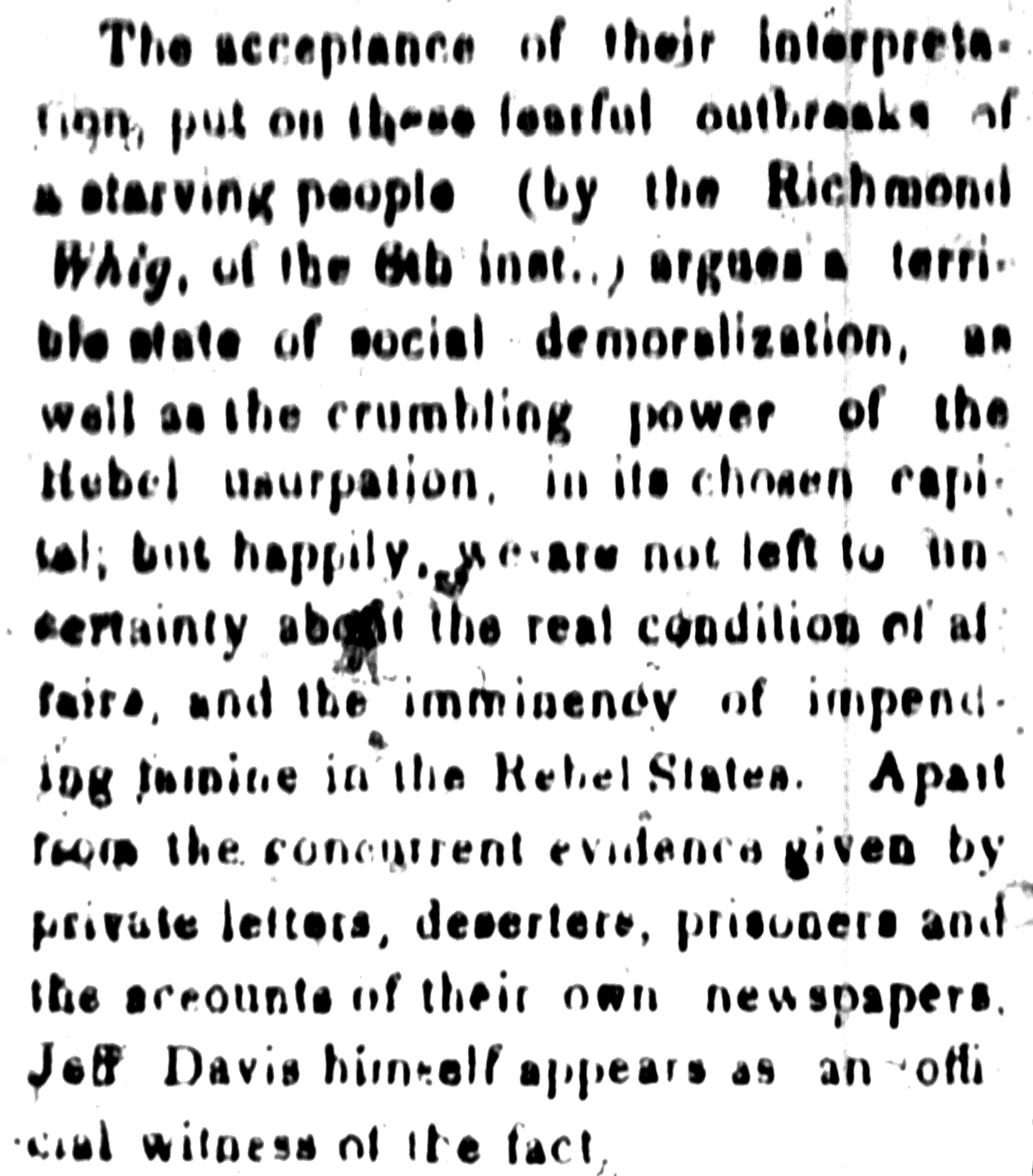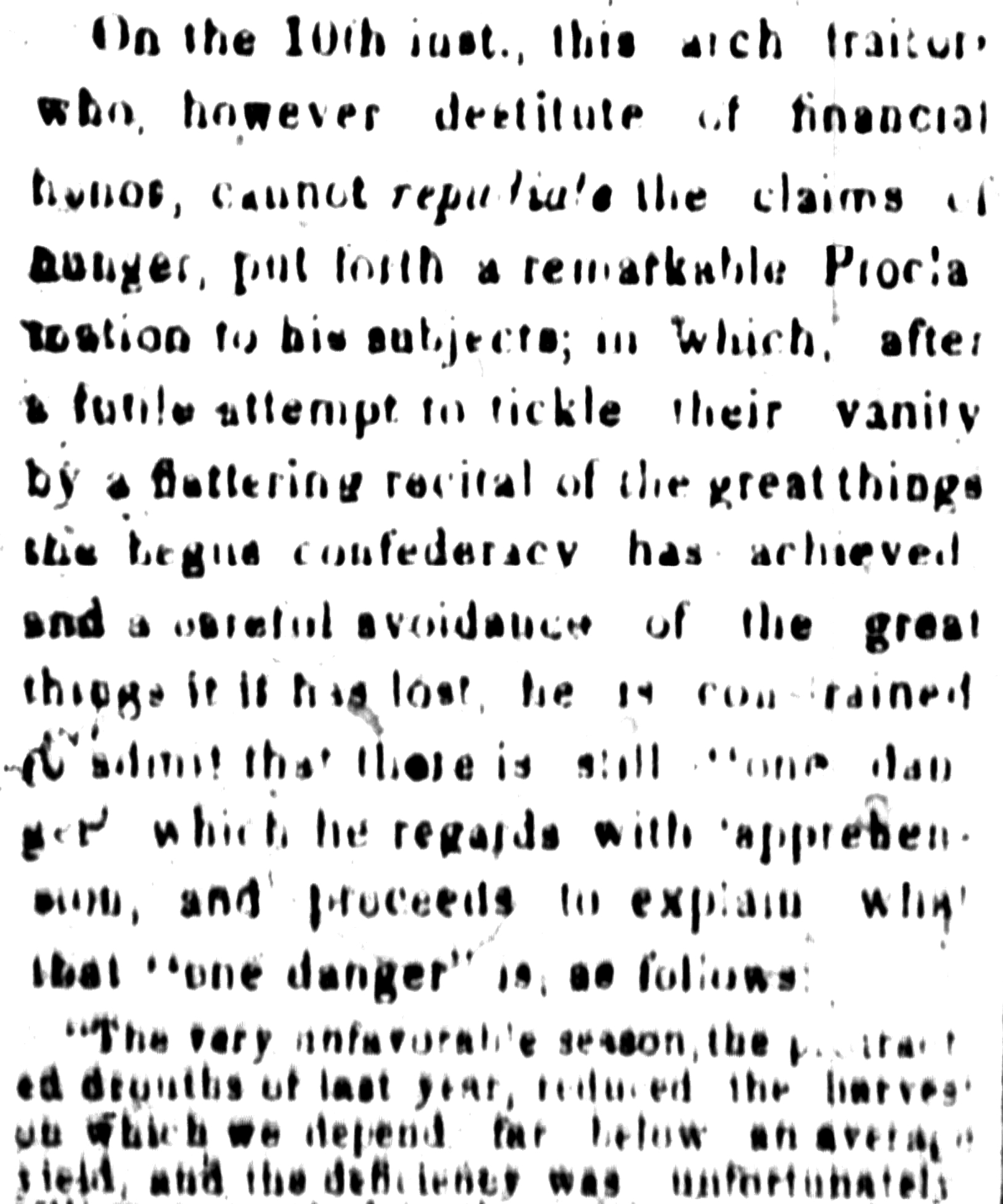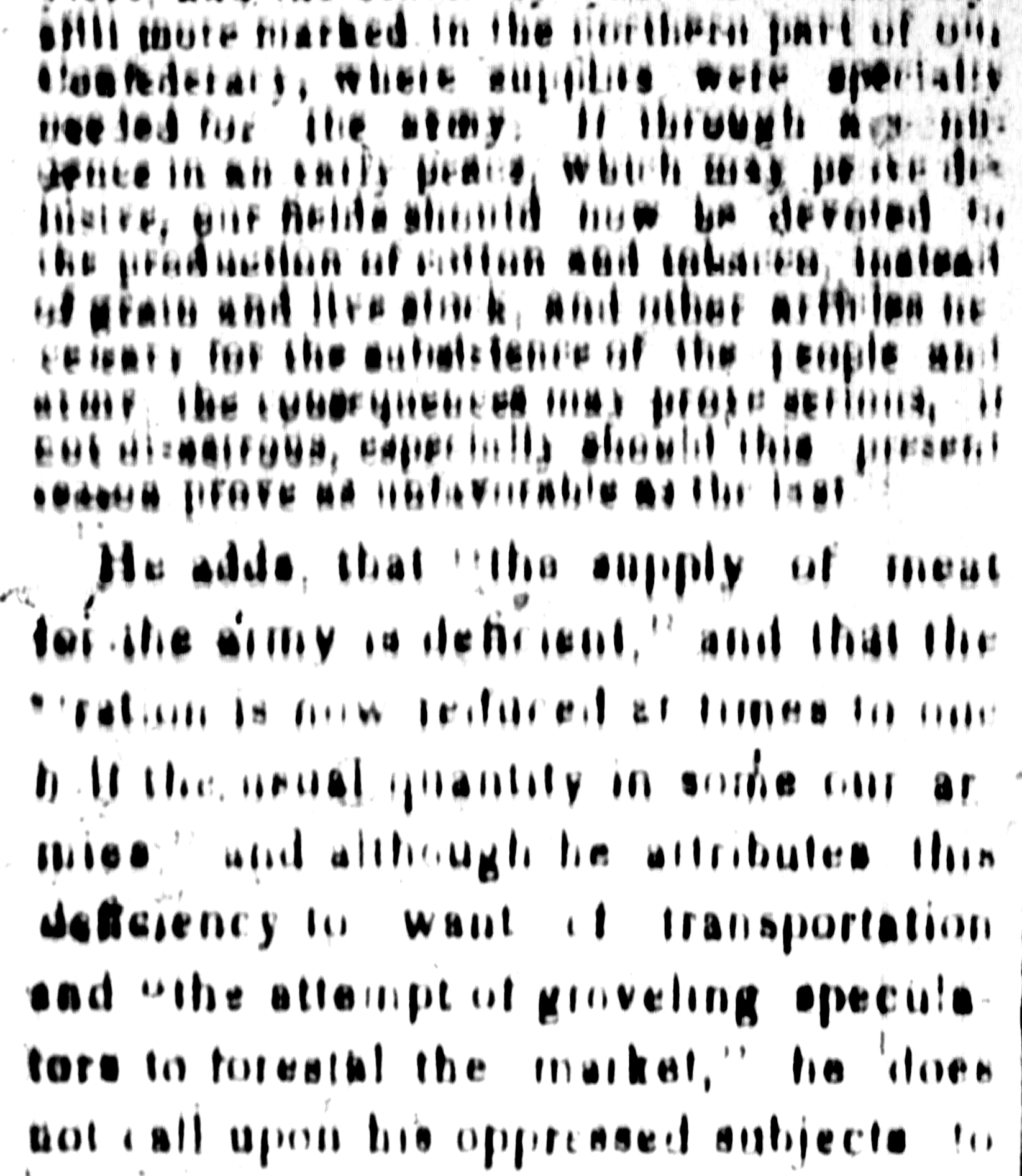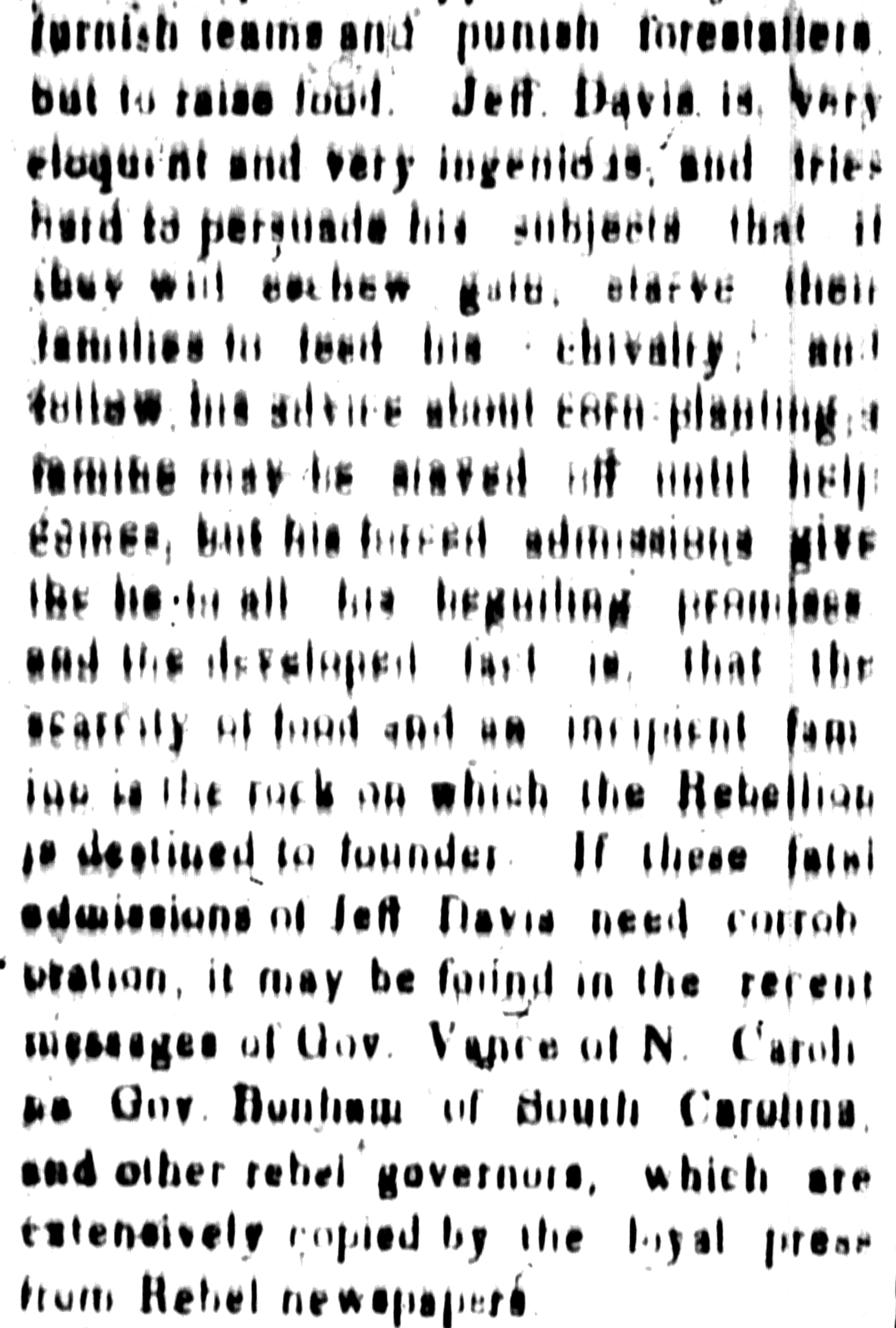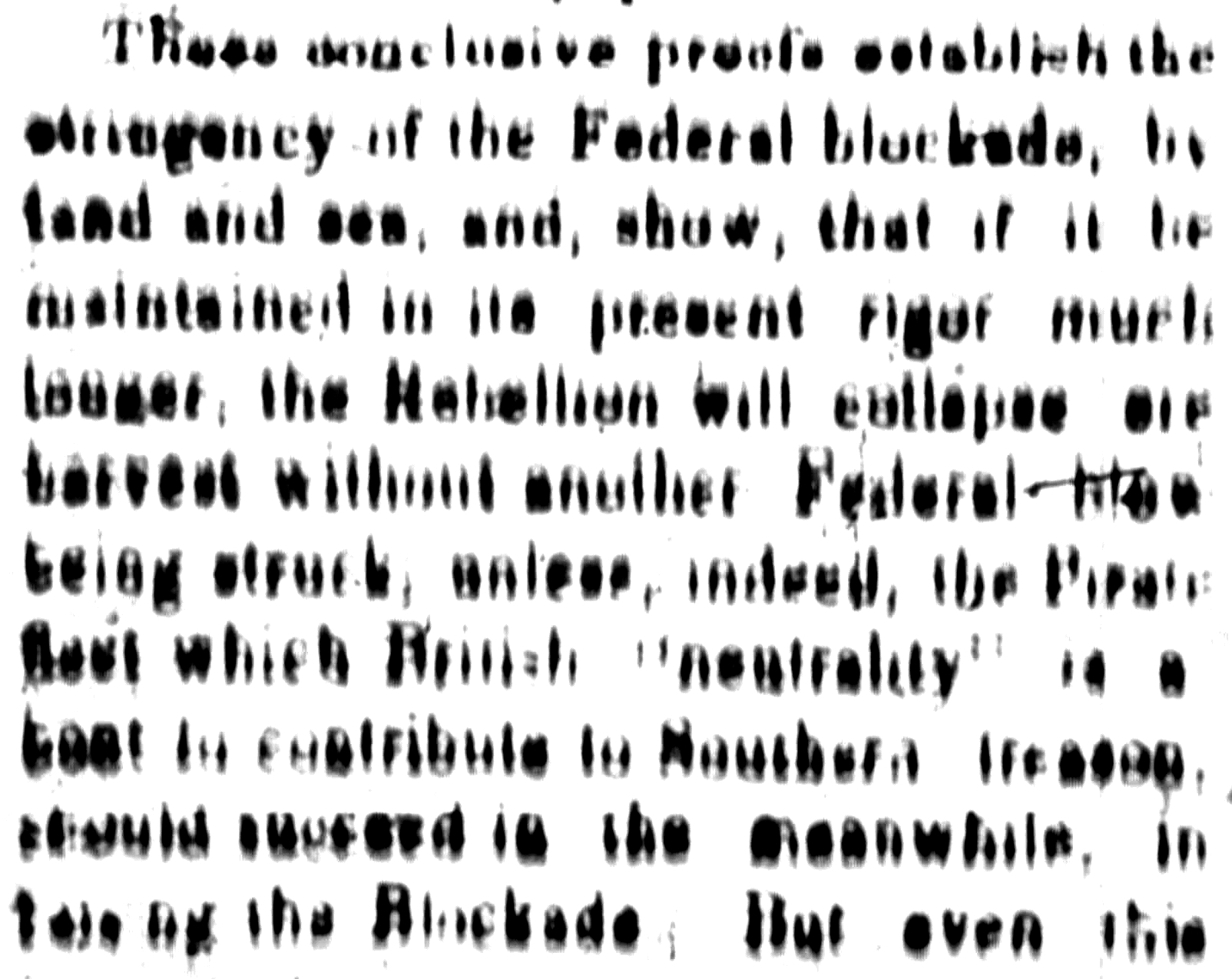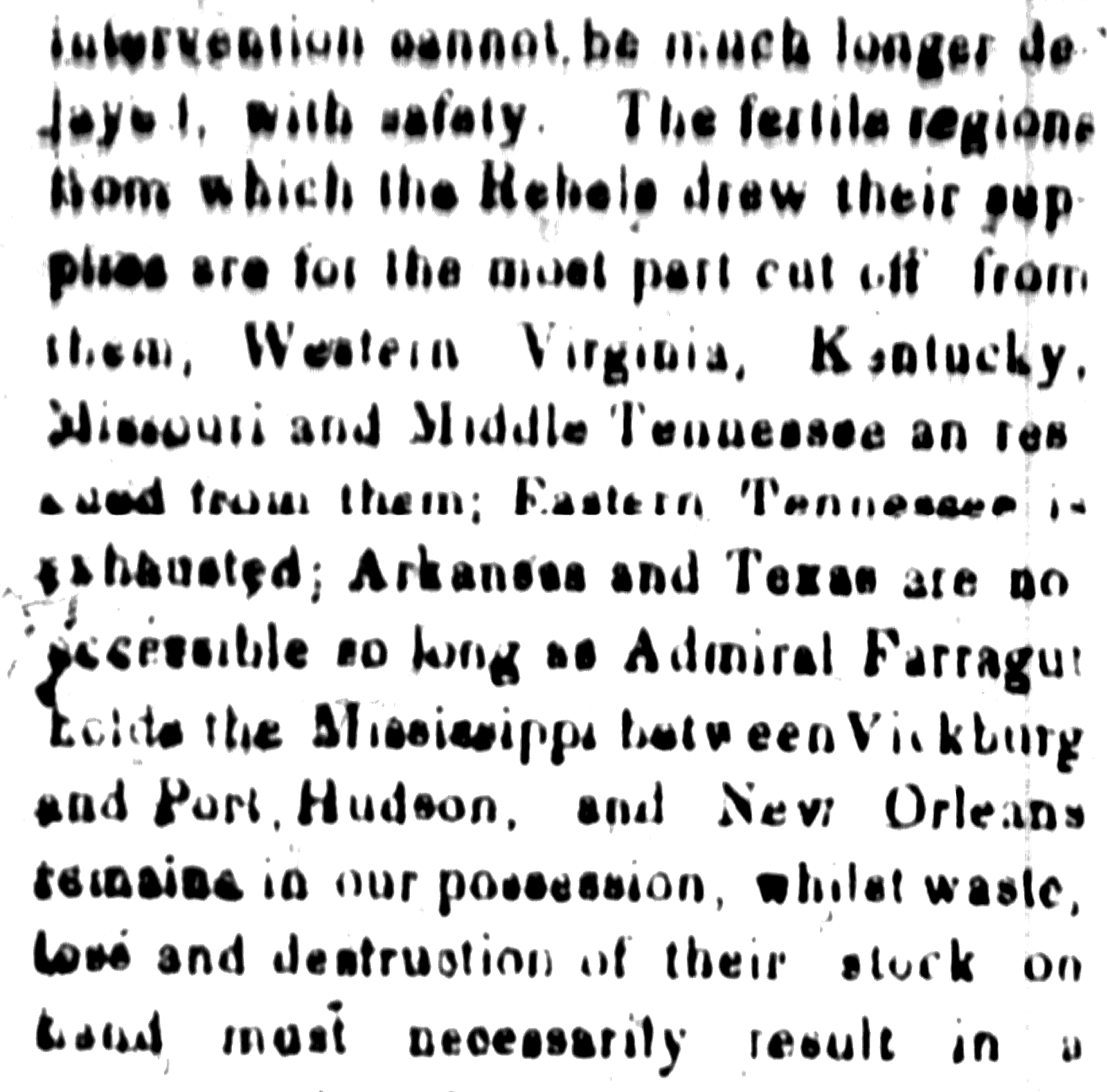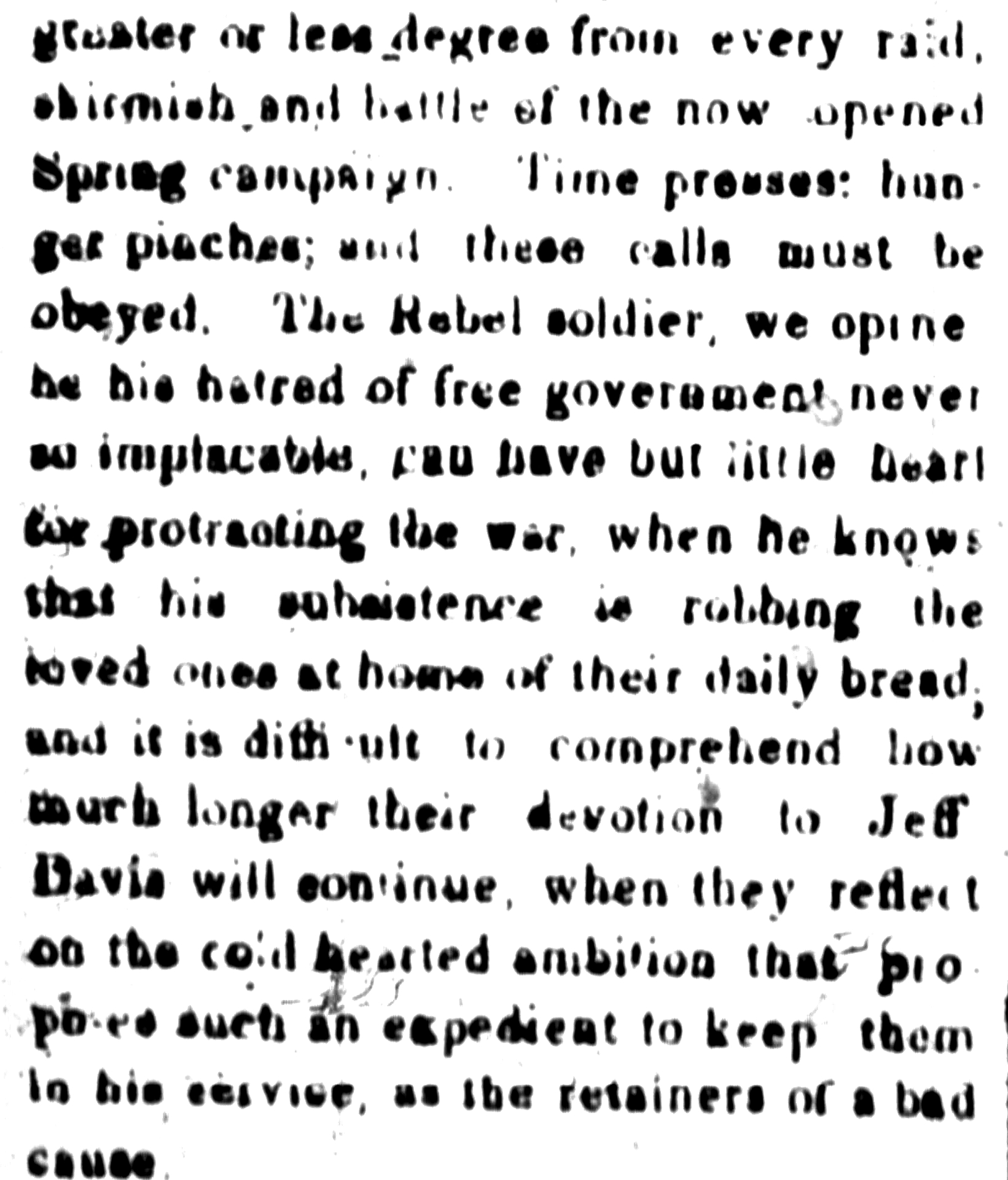Famine at the South
Summary
Report concerning bread riots which have broken out in Richmond and elsewhere in the Southern states. Some Southern newspapers attempt to characterize the riots as efforts to obtain luxury goods, but other newspapers, reports from deserters, private letters, etc. indicate the true extent of deprivation among citizens and the Rebel army. Confederate president Jefferson Davis admits in a proclamation to "one danger" which is the drought which occurred in 1862 and which he hopes will not affect the South in 1863. Davis makes an effort to hide the true extent of the famine, but the governors of North and South Carolina and other governors have voiced concerns. The article refers to the effectiveness of the Federal blockade and says that areas such as Western Virginia, central Tennessee, Kentucky, Missouri, Arkansas and Texas which formerly supplied the Confederacy with food are no longer able to send supplies. Admiral Farragut controls most of the Mississippi River. This lack of adequate food is predicted to cause the collapse of the rebellion. "The Rebel soldier...can have but little heart for protracting the war, when he knows that his subsistence is robbing the loved ones at home." Also mentioned are those who are Southern sympathizers but are not suffering the deprivations. The Potomac blockade maintained locally by Gen. Schenk prevents goods from going South.
Article Source
Newspaper: The Frederick Examiner
Publication Date: April 22nd, 1863
Page/Column: 2A
Town: Frederick, MD
County: Frederick
Subjects
- Home Front / Effects of War

